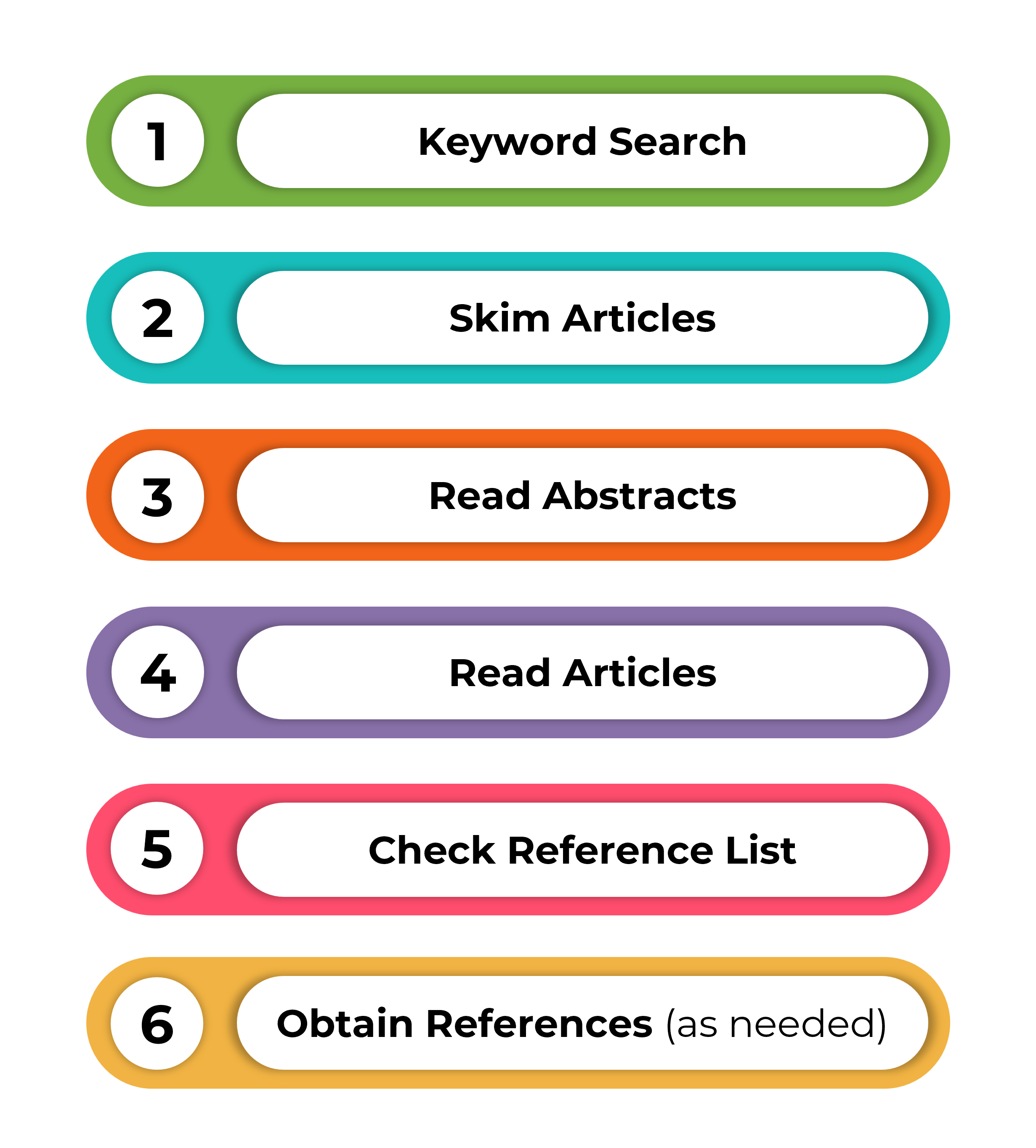
Luke Duesbery and Todd Twyman (2020) offer some advice for doing an efficient literature review.
Be cautious of allowing the literature to shape questions when you are in a better position to do so.
Don’t get side-tracked or distracted by other issues TimelinessBe aware of the dates of the literature you find, focus your review on the thinking and empirical research that is most current in that particular discipline –look largely at literature produced or published in the last five years
Counter-argumentsLook for material that both support and contradict your views. It is important to examine the literature to better understand how and why things changed.
Primary SourcesConsult primary sources where possible (those conducting the research and publishing their findings). Primary sources are preferable to secondary sources (those that build on, quote and use other peoples’ research). Use as many primary sources as possible.
Beware of feeling the need to read beyond the point necessary to conceptualize one’s study. Read enough to get started, but not so much that you become too exhausted to conduct your study –Simply read until ideas are framed in a context that makes sense for your purposes.

After conducting a keyword search and finding literature,
Most research articles have a similar structure. Being familiar with the structure of research articles will help you know where to look for what in the article.
For each study you review, encapsulate it into a brief summary that reflects any aspect of the study that has relevance to your topic.
This may include
Note:
Remember, however, to emphasize the research findings – that is what will influence your study most.
Identify Themes and Gaps in Literature
The following video will help you as you review the literature relevant to your research topic.
Source: Scribbr. YouTube, 23 Apr 2020.
Once sources are chosen they must be further evaluated to determine how the reviewed information can be used to guide your action research project (Hendricks, 2013).
Questions to ask in evaluating the literature include the following:
Does the source provide information that can help inform my action research study?
CredibilityDoes the source seem credible? If the source is not a research study, are the claims and/or suggestions made by the author based on his or her extensive experience?
SimilarityIs the information in the source based on the study of a setting that is similar to mine?
Once sources have been chosen based on their relevance, credibility, and similarity to the action research study the next step is to synthesize information. Synthesizing involves connecting information into a coherent, integrated whole. This is done when all the relevant sources have been thoroughly read.
Using the documentation tool below, write both your proposed action research topic and the keywords in your action research question.
Proposed Action Research Question:
“How can online polling increase student engagement during lectures?”Keywords in Action Research Question: Online Polling, Engagement, Lectures